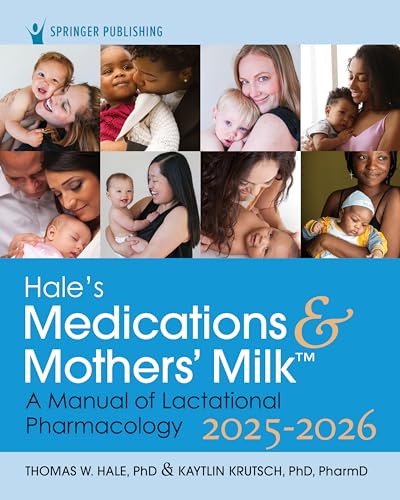As we explore the complexities of medication use while breastfeeding, it is interesting to note that a study found that approximately 75% of breastfeeding mothers in the United States take some form of medication.
However, when it comes to Ozempic, a common question arises – can you take it while breastfeeding? The answer to this query is multifaceted, touching on factors like the drug's potential transfer into breast milk and its impact on infants.
Let's investigate the nuances surrounding the use of Ozempic in breastfeeding mothers to shed light on this important topic.
Key Takeaways
- Consult healthcare provider for Ozempic use while breastfeeding.
- Limited transfer to breast milk due to high protein binding.
- Caution advised due to scarcity of studies on effects.
- Monitor closely for any potential side effects on breastfed babies.
Ozempic breastfeeding safety
As an affiliate, we earn on qualifying purchases.
As an affiliate, we earn on qualifying purchases.
Safety of Ozempic During Breastfeeding
When considering the safety of Ozempic during breastfeeding, caution is warranted due to the limited research on its potential effects on breast milk. Ozempic, a medication known for its benefits in managing blood sugar levels, poses uncertainties regarding its impact on breast milk production. It's important to consult with your healthcare provider before starting this medication while breastfeeding to guarantee the well-being of both mother and baby.
While Ozempic is mostly bound to proteins, the extent to which it passes into breast milk remains unclear. This lack of concrete evidence necessitates a careful approach to using this medication while breastfeeding. Potential side effects and the overall impact on the infant are critical aspects that need thorough evaluation before proceeding.
The decision to take Ozempic while breastfeeding should be a well-informed one, considering the delicate balance of benefits and risks involved. Consulting with a healthcare provider is essential to tailor the treatment plan to individual needs and safeguard the safety of both mother and baby throughout the breastfeeding journey.

Hale’s Medications & Mothers’ Milk 2025-2026: A Manual of Lactational Pharmacology
As an affiliate, we earn on qualifying purchases.
As an affiliate, we earn on qualifying purchases.
Passage of Ozempic Into Breast Milk
Limited research on the passage of Ozempic into breast milk raises concerns about its potential impact on breastfeeding infants. Semaglutide, the active ingredient in Ozempic, has properties that suggest minimal transfer into breast milk. Being highly protein bound and having a high molecular weight, semaglutide may have limited passage, reducing the risk of exposure to infants. Absorption of Ozempic by breastfed babies is expected to be low due to these characteristics. However, caution is advised as the exact effects of Ozempic on breastfeeding infants remain uncertain without thorough studies.
| Property | Description |
|---|---|
| Passage into breast milk | Expected to be limited due to high protein binding and molecular weight of semaglutide |
| Blood sugar effects | Unlikely to affect infants due to minimal absorption |
| Caution | Recommended due to lack of concrete data on effects in breastfed infants |
This information underlines the need for further research to fully understand the implications of Ozempic use while breastfeeding.

Metene TD-4116 Blood Glucose Monitor Kit, 100 Glucometer Strips, 100 Lancets, 1 Blood Sugar Monitor, Blood Sugar Test Kit with Control Solution, Lancing Device, No Coding, Large Display
Advanced Glucometer Kit: metene TD-4116 diabetes testing kit is equipped with advanced technologies, brings more accurate and reliable…
As an affiliate, we earn on qualifying purchases.
As an affiliate, we earn on qualifying purchases.
Side Effects on Breastfed Babies
Research findings regarding the potential side effects of Ozempic on breastfed babies are currently limited, necessitating caution and close monitoring for any adverse reactions. While there have been no reported side effects in breastfed babies directly linked to Ozempic, the limited data available highlights the need for vigilance. Here are key points to consider:
- Limited Research: There's a scarcity of thorough studies on the effects of Ozempic specifically on breastfed infants, making it challenging to ascertain the potential risks involved.
- Caution Advised: Given the lack of concrete evidence, caution is advised for breastfeeding mothers using Ozempic, as the full extent of its impact on nursing infants remains uncertain.
- Monitoring Recommended: It's vital for healthcare providers to closely monitor both the breastfeeding mother and the baby for any potential effects that may arise while using Ozempic, emphasizing the importance of regular follow-ups and observations.
As further research is conducted, continuous monitoring and cautious decision-making are crucial to ensure the well-being of both the mother and the baby.

2Pack Protein Powder Container to go Portable Supplement Funnels for Filling Bottles with Protein Powder Compartment Pill Storage, Great for Workout, Travel, to-Go, Fitness(Orange
Fast and efficient:protein powder container to go is easy to pour and mix supplements, allows you to pour…
As an affiliate, we earn on qualifying purchases.
As an affiliate, we earn on qualifying purchases.
Impact on Breast Milk Supply

To understand the impact of Ozempic on breast milk supply, we must consider how this medication can potentially influence the hormones responsible for lactation. Ozempic's appetite suppression effects can lead to reduced nutritional intake, affecting the quality and quantity of milk produced. Prolactin, a hormone critical for milk production, may also be impacted by Ozempic, potentially hindering lactation. It's essential for breastfeeding mothers taking Ozempic to monitor their milk supply closely and seek lactation support if needed.
Maintaining a healthy milk supply while on Ozempic involves understanding how this medication affects the body's hormonal balance. Adequate nutrition and hydration are key factors in supporting milk production. Monitoring changes in milk supply, such as a decrease in volume or frequency of feedings, is important for early intervention. Consulting healthcare providers for guidance on managing the impact of Ozempic on lactation can help make sure both maternal health and infant nutrition are prioritized.
Weight Loss Options for Breastfeeding Mothers
When considering weight loss options while breastfeeding, it's essential for mothers to prioritize a healthy diet and regular physical activity for safe and effective results that support both their own health and the nutritional needs of their baby.
Here are three key strategies for weight loss while breastfeeding:
- Certified Nutrition Support: Seek guidance from a certified nutrition specialist who can tailor a meal plan suitable for breastfeeding, making certain you receive adequate nutrients while promoting weight loss.
- Safe Exercise Regimen: Consult a healthcare provider to design a safe exercise routine that aligns with your postpartum recovery and breastfeeding journey, promoting gradual weight loss without compromising milk supply.
- Health Monitoring: Regularly monitor your health indicators, such as blood sugar levels if you have diabetes, to make certain that weight loss efforts are balanced with the demands of breastfeeding while maintaining overall well-being.
Frequently Asked Questions
Is It Safe to Breastfeed While on Ozempic?
It is uncertain if breastfeeding while on Ozempic is safe due to limited data. Consult a healthcare provider for personalized advice. Our cautious stance reflects the lack of evidence on Ozempic's impact during breastfeeding.
Can You Take Weight Loss Injections While Breastfeeding?
Yes, weight loss injections may impact breast milk composition and infant health. We consult healthcare providers before considering them while breastfeeding. Monitoring for side effects in infants is essential. Safety concerns warrant caution.
Is Ozempic Safe to Take While Pregnant?
We acknowledge the concern about Ozempic's safety during pregnancy. Limited data exists, highlighting potential risks. Consulting a healthcare professional is essential for personalized advice. Exploring alternative medications with established safety profiles may be recommended.
Has Anyone Gotten Pregnant on Ozempic?
Yes, some individuals have become pregnant while using Ozempic. It's important to seek guidance from a healthcare provider if this happens. Understanding the implications and discussing concerns with a professional is essential for making informed decisions about pregnancy and medication use.
Conclusion
To sum up, when considering taking Ozempic while breastfeeding, it's essential to prioritize the safety and well-being of both mother and baby. Consulting with a healthcare provider, like a Registered Nurse and Lactation Consultant, can provide personalized guidance.
Remember, when it comes to breastfeeding and medication, it's better to be safe than sorry. As the saying goes, 'better safe than sorry' – trust the experts and make informed decisions for the health of both you and your little one.









